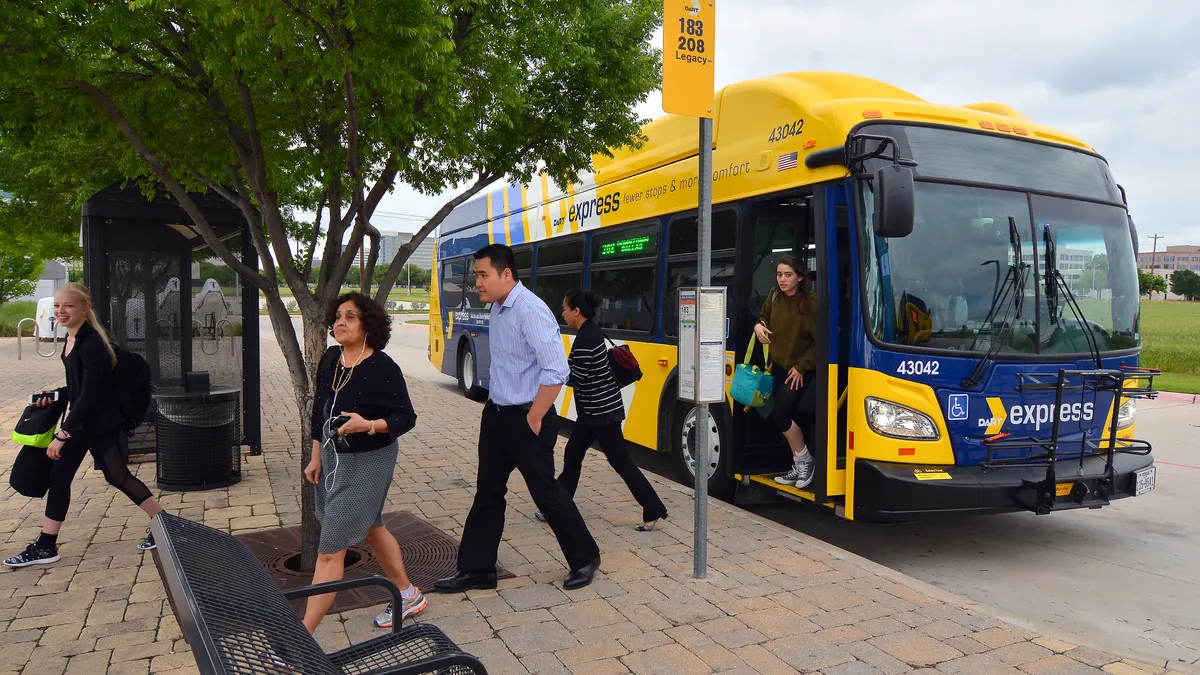Dive Brief:
- More than 20% of people without a personal vehicle and with only poor or fair access to public transportation said they had foregone healthcare needs because of difficulty finding transportation, according to a report this week from the Urban Institute.
- Adults with a disability, Black adults, people with low incomes and those on public insurance were more likely to report going without needed healthcare because of transportation issues, it found.
- Overall, 5% of U.S. adults said transportation barriers kept them from the care they needed, the Urban Institute said.
Dive Insight:
Payers and providers in recent years have bolstered their efforts to address social determinants of health, such as lack of transportation. Missed medical appointments can cost the U.S. healthcare industry as much as $150 billion annually.
Insurers, particularly in the Medicare Advantage program, have expanded benefit offerings to include a ride to a doctor’s appointment in some cases. Providers have partnered with companies such as Uber and Lyft to provide transportation.
Lyft has been in the non-emergency medical transportation business since 2016 and launched an additional patient request option in 2021. Uber started Uber Health in 2018 with an NEMT platform. The company most recently expanded into same-day prescription delivery. Still, some research has questioned the effect Uber and Lyft have on helping people make appointments.
“For policymakers, these findings highlight a potential return on investments in public transit in the form of improved access to health care, as well as the gaps that may need to be filled by Medicaid coverage of nonemergency medical transportation or expanded access to telehealth when public transit options are limited,” the report said.
Telehealth services have seen an uptake during the COVID-19 pandemic as people stayed home and avoided doctor’s offices. Federal regulations were relaxed to allow for this, but some are still considered temporary.













